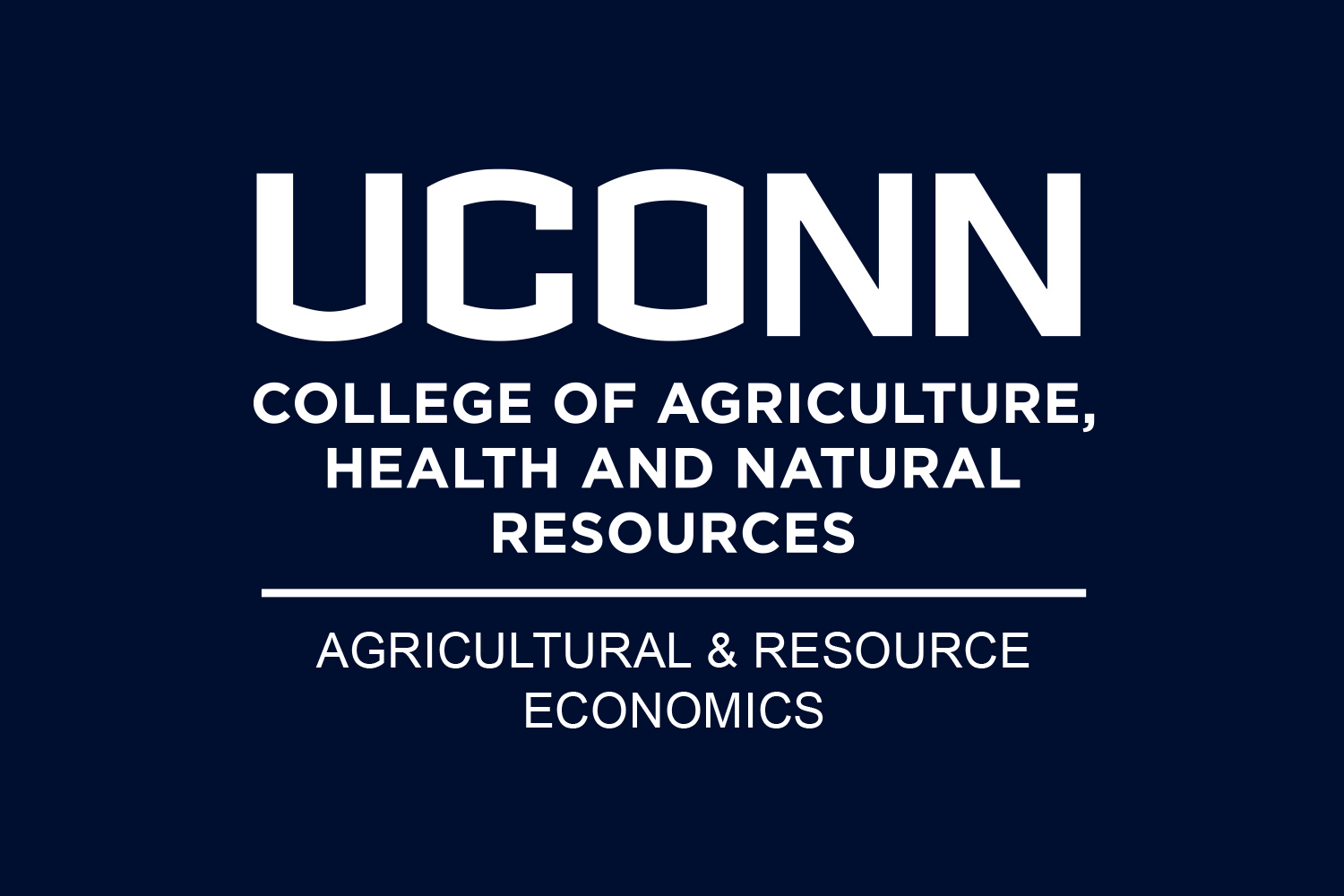Nathan Fiala, assistant professor in the Department of Agricultural and Resource Economics recently received a three-year $500,000 USDA grant to study workforce and economic development issues in Connecticut and throughout New England.
“Workforce mismatch is the idea that there are businesses in particular areas that need certain skills but the people surrounding those areas do not have those skills, but instead have other types of skills that are no longer needed,” Fiala explains. “We want to determine where those skill mismatches exist and help the local chamber of commerce and other agencies to develop communication and programming that better prepares workers.”
One such strategy involves connecting with local high schools to enlighten students about available career options.
“One of our concerns is that over the past fifty years, schools have moved away from teaching technical skills, and so for a large population of students not interested in attending college, they are entering the work force with limited skills,” Fiala says. “What’s been shown is that if you educate people about available job opportunities, you can induce them to seek the necessary skills.”
This may include promoting programs available at technical schools, community colleges, or other job training programs, and for younger students, technical high schools.
Additionally, Connecticut and neighboring states have had to deal with the COVID economic shut down. There will be businesses that close permanently, as well as a shift in focus for other companies. Fiala is interested in these work force implications and exploring interventions to improve career opportunities.
“We’re interested in how COVID is affecting supply chains in New England. That can have a huge impact on the work force in general. I think it is important for us to shift some of our focus to studying how the COVID crisis will to be affecting employment.”
“We are developing relationships with area chambers of commerce, local agencies and applicable branches of government to develop a post-COVID economic recovery initiative. Laura Brown [extension educator in community economic development] has been very helpful in connecting us with local agencies. We are also considering creating a public website to coordinate activities across the state.”
The project is currently in the fact gathering stage, as site visits have not been possible during the pandemic. Fiala plans to hire a Ph.D. student and staff to assist with data collection and program implementation.
“We don’t want to double up what is already being done,” he says. “Our goal is to help support and strengthen some existing programs and government initiatives and conduct research to see what programming works the best. What we are doing now, may not work in the future. We may do some shifting.”
The idea for this study was the brainstorm of Fiala’s former Ph.D. student, Thomas Krumel, and was based on his work as an AmeriCorps volunteer in Nebraska. Krumel is currently working for the USDA Economic Research Service in Kansas City, and has experience in work force development and the meat packing industry.
As an expert in international economic development, Fiala has conducted this type of research around the world, most recently in Uganda and Bangladesh.
“I am very interested in real-world policy and relevant research that targets and affects the most vulnerable and poorest communities around the world,” he says. “Most of the time I partner with local organizations. In Bangladesh, I worked with Save the Children, evaluating the impact of a computer technology skills program being taught to children in the slums of Dhaka. They were interested in understanding how the training was working and whether it affected job opportunities and long-term economic security.”
Fiala’s interest in international economic development began during his childhood, and as a first-generation college graduate, he sees the importance of providing people with employment skills.
He says, “I grew up in Saudi Arabia. My father trained pilots for commercial airlines. We traveled a lot and when I was five we went to Kenya, and that experience stayed with me. By the time I was thirteen, I decided I wanted to work in this field and find the best way to support low-income people around the world. I do think that experience in Kenya was the cornerstone for that. I work with homeless populations in Willimantic, but it does not compare to the poverty I witnessed in Africa and Asia. That being said, as one of the richest countries in the world compared with other developed countries, we have some of the worst poverty.”
Fiala is concerned that the COVID epidemic will disproportionately affect the poor in the United States but feels that by redeveloping systems that other countries have found effective in combating poverty, we could help those struggling families.
In another project, Fiala is involved in a collaboration with the Harvard Cities RISE Initiative funded through the Bloomberg Center. Fiala is working with a group that meets with Mike Bloomberg in weekly Zoom meetings to provide support to mayors from the United States and around the world during the COVID crisis.
Additionally, with support through this initiative, Fiala is tracking residents in Newburgh, New York, after condemnation of their rental homes, as well as providing financial counseling for low-income people in Rochester to reduce evictions.
Research described in this article is funded by USDA Award #2020-67024-30954.



